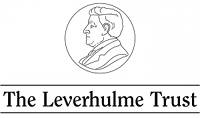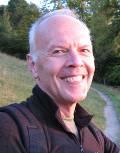 |
Stephen ShennanStephen Shennan is Professor of Theoretical Archaeology at the UCL Institute of Archaeology, where he was Director from 2005 to 2014. His interests are focussed on the use of method and theory from the study of biological evolution to understanding cultural stability and change in prehistory, with a particular focus on the role of demographic and cost/benefit factors and the mechanisms of cultural transmission. He has published over 100 papers and over 20 authored and edited books, including Quantifying Archaeology (2nd edition 1997); Genes, Memes and Human History (2002); Pattern and Process in Cultural Evolution (edited, 2009); and most recently Connecting Networks: characterising contact by measuring lithic exchange in the European Neolithic (2015, co-edited with Tim Kerig). He directed the ERC-funded EUROEVOL project from 2010 to 2015. |
 |
Tim KerigTim Kerig is currently post-doc at the DFG Research Training Group 1878 "Archaeology of Pre-Modern Economies", a joint project between the Universities of Cologne and Bonn, Germany, where he directs his project "Simple and complex economies: studies in the prehistory of labour". His primary research interests include European Neolithic and Bronze Age societies, economic archaeology and anthropology, evolutionary approaches and the history of archaeology. He is a specialist in European Neolithic material culture. For ten years, he has been a speaker of the German branch of Computer Applications and Quantitative Methods in Archaeology (CAA). He was involved in fieldwork projects and directed large-scale rescue excavations. He has been curator and museum adviser in Germany and abroad. He directed his own project "Econometrics of the Central European Neolithic" funded by the German Research Council (DFG). He was part of the EUROEVOL team at University College London. He has taught intensively at seven Universities and submitted recently his habilitation thesis at the University of Leipzig. |
 |
Mike Parker PearsonMike Parker Pearson is Professor of British Later Prehistory at UCL. He has a wide-ranging interest in British and European prehistory, most notably Stonehenge, where he has worked since 2003. He has excavated in many different countries around the world from Easter Island to the Middle East, and has directed long-running projects in Madagascar and the Outer Hebrides. One of his current interests is in the quarrying of megalithic stones by Neolithic societies. |
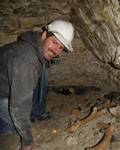 |
Kevan EdinboroughKevan Edinborough is a Research Associate at Institute of Archaeology, University College London. His primary research interests include chronological analysis, lithic technology, computational modelling, and landscape ecology. He is a co-investigator on the NSF funded project "Settlement pattern dynamics and the evolution of social complexity on the northern Northwest Coast" in British Columbia, Canada, and is a project partner investigating the farming transition in the Balkans with the ERC funded EUROFARM team. |
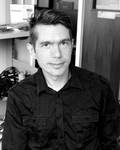 |
Peter SchauerPeter Schauer is a Research Associate at the UCL Institute of Archaeology. His research interests include computational applications of evolutionary models to cultural change, the anthropology of artistic practice and costly signalling in human and non-human primates. |
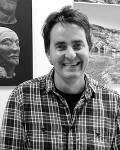 |
Andrew BevanAndrew Bevan is Professor of Spatial and Comparative Archaeology at UCL with research interests at the intersection of archaeology, anthropology, history and geography. His article-length publications range widely across aspects of landscape archaeology, material culture studies, social theory, spatial analysis and computational modelling, including research projects located in north-west Europe, central America, eastern Asia and the Mediterranean. He has also written or edited books on the long-term historical ecology of a Mediterranean island, stone artefact value systems, cultures of commodity branding and computational approaches to past human uses of space. |
 Close
Close


